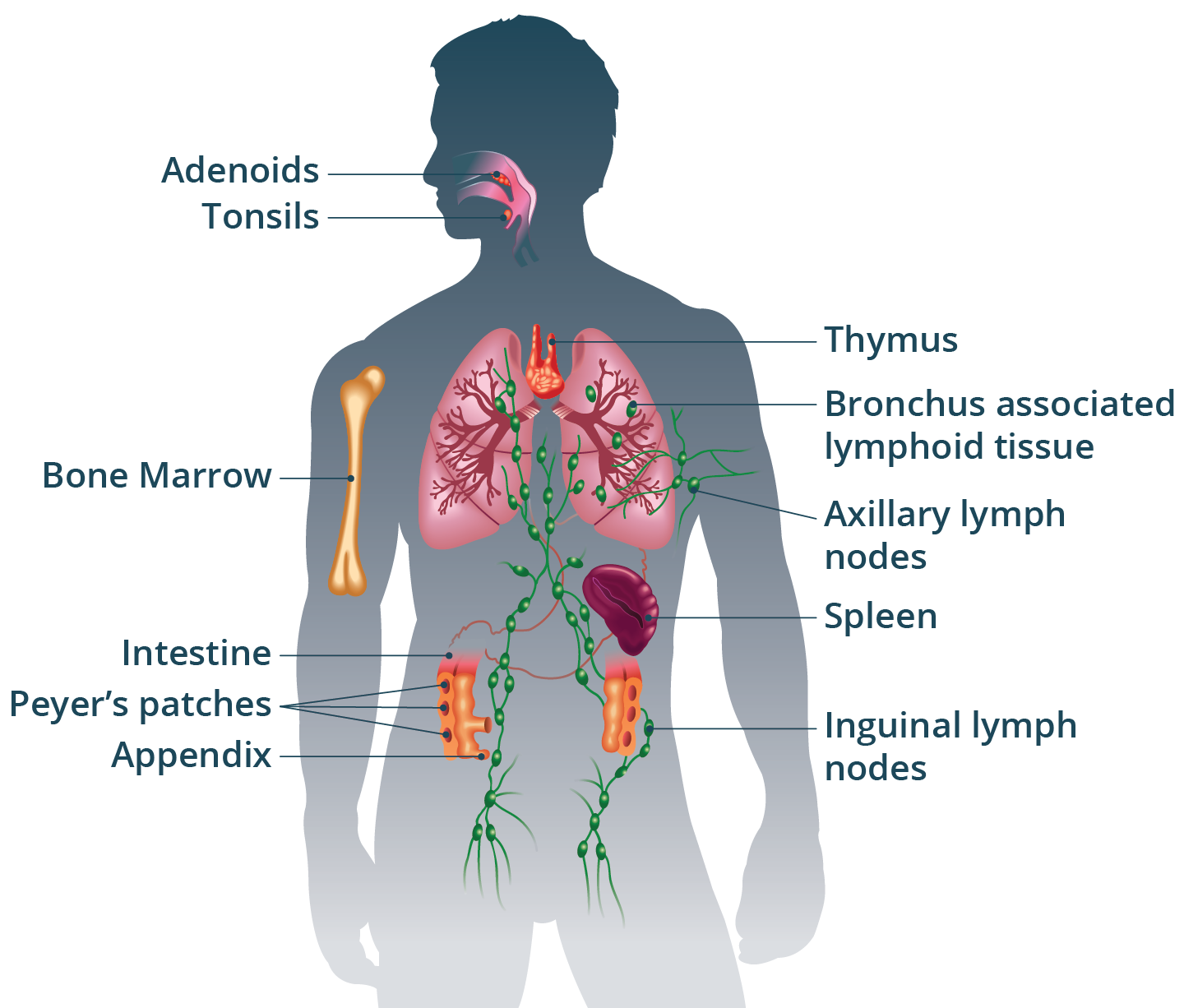Inside your body, an epic battle rages every single day—unseen, silent, but absolutely vital. This conflict is not waged with swords or bullets, but with cells, proteins, and chemicals. It’s a fight for survival, and the heroes are part of an extraordinary biological system known as the immune system. From the moment you’re born to the day you take your last breath, your immune system is your constant protector—your body’s personal army against disease.
But the immune system is more than just a shield. It’s a deeply intelligent, adaptable, and complex network that learns, remembers, and evolves. It’s your internal security force, always on alert, scanning for danger, identifying invaders, and launching precise counterattacks. It’s part science fiction, part superpower—and 100% essential for life.
What Is the Immune System?
The immune system is a vast, interconnected network of organs, cells, and molecules that protects your body from harmful substances, pathogens (like bacteria, viruses, and fungi), and abnormal cells (such as cancer). It acts both offensively and defensively: it attacks invaders and clears them out, but also constantly monitors your own cells for signs of damage or mutation.
Unlike a single organ like the heart or the liver, the immune system is everywhere. It’s in your blood, your lymph nodes, your bone marrow, your skin, your gut. It is always watching, always working—even when you sleep.
It’s also astonishingly dynamic. The immune system doesn’t just react; it anticipates. It has memory. Once it defeats a particular pathogen, it remembers how, often for life. This is why you usually don’t get sick from the same virus twice—and it’s also the principle behind how vaccines work.
The Two Faces of Immunity: Innate and Adaptive
The immune system operates on two levels that work in harmony: the innate immune system and the adaptive immune system.
The innate immune system is your body’s first line of defense. It’s fast, broad, and always on. When bacteria invade a cut or you inhale a virus, your innate immunity jumps into action within minutes. It doesn’t need to recognize the exact invader to fight—it just knows it doesn’t belong. Think of it as your body’s general alarm system.
This includes physical barriers like skin and mucous membranes, as well as internal defenses like white blood cells called neutrophils and macrophages that engulf and destroy invaders. It also uses chemicals like cytokines and interferons to amplify the alarm and recruit more immune cells to the site of infection.
But what if the invader is clever or persistent? That’s where the adaptive immune system comes in. It’s slower to respond—sometimes taking days—but it’s incredibly specific and powerful. It identifies the exact pathogen and creates a customized attack. And once it’s seen a specific germ, it remembers it. Forever.
The stars of the adaptive immune system are the B cells and T cells. B cells make antibodies—special proteins that recognize and neutralize foreign invaders. T cells come in two main types: killer T cells, which destroy infected or abnormal cells, and helper T cells, which coordinate the immune response.
The Immune System in Action: A War Story
Imagine you step on a rusty nail. The metal pierces your skin, delivering bacteria deep into the tissue. Almost immediately, your innate immune system kicks into gear. The damaged cells release chemical distress signals. Blood vessels widen to allow immune cells to rush in, creating redness, swelling, and warmth. Neutrophils arrive first, followed by macrophages, which devour the bacteria and dead cells.
But if the bacteria are especially nasty, your innate system calls for backup. The adaptive immune system joins the battle. B cells recognize the foreign proteins on the bacteria’s surface and begin producing antibodies—millions of them, each shaped like a key to fit the bacteria’s unique molecular lock. These antibodies tag the invaders for destruction or neutralize them directly.
Meanwhile, killer T cells identify infected cells and destroy them before the bacteria can spread further. Once the battle is won, some B and T cells become memory cells, standing guard in case the same pathogen ever returns.
This brilliant coordination of defense, destruction, and memory is the immune system at its finest.
Organs of the Immune System: A Team Effort
Although the immune system is a distributed network, it relies heavily on several key organs that play specialized roles:
Bone marrow is where immune cells are born. Inside the spongy center of your bones, stem cells divide and differentiate into the many types of immune cells, including B cells and T cells.
The thymus is a small organ behind the breastbone where T cells mature. It trains them to recognize self from non-self—an essential lesson that prevents autoimmune disease.
Lymph nodes are small, bean-shaped filters spread throughout the body. They act like military checkpoints where immune cells gather, share information, and launch responses.
The spleen filters the blood, removing old red blood cells and detecting infections. It also houses large numbers of immune cells.
The skin and mucous membranes (like those in the nose, mouth, and gut) serve as physical barriers and chemical sentries, armed with enzymes and antimicrobial peptides.
The gut is especially important, housing over 70% of the body’s immune cells. The gut-associated lymphoid tissue (GALT) plays a critical role in distinguishing friend from foe among the trillions of microbes that live in your digestive system.
Immune System Memory: Smarter with Every Battle
One of the most remarkable features of the adaptive immune system is immunological memory. Once B and T cells have fought off a particular pathogen, they don’t just disappear. Some become long-lived memory cells that stay in your body for years—or even decades—ready to leap into action if the same threat reappears.
This is why most people only get diseases like chickenpox once. It’s also why vaccines work. A vaccine introduces a harmless part of a pathogen—often a protein or inactivated virus—so your immune system can “train” without the risk of illness. When the real virus shows up, your immune system doesn’t just recognize it—it ambushes it before it can cause harm.
Allergies, Autoimmunity, and When the Immune System Goes Wrong
As powerful and sophisticated as the immune system is, it’s not perfect. Sometimes, it overreacts. Other times, it misfires. These mistakes can cause serious health problems.
Allergies happen when the immune system mistakes a harmless substance—like pollen, peanuts, or pet dander—for a dangerous invader. It launches a full-scale attack, releasing histamines and other chemicals that cause sneezing, itching, inflammation, and in severe cases, life-threatening reactions like anaphylaxis.
Autoimmune diseases occur when the immune system fails to distinguish between self and non-self. It begins attacking your own tissues as if they were foreign invaders. Conditions like rheumatoid arthritis, type 1 diabetes, lupus, and multiple sclerosis are all autoimmune in nature. These diseases can be chronic, debilitating, and difficult to treat.
Then there’s immunodeficiency, where the immune system is too weak or incomplete to defend the body properly. This can be inherited (like severe combined immunodeficiency, or SCID) or acquired (as in HIV/AIDS). People with weakened immune systems are more vulnerable to infections, even from microbes that are harmless to others.
The Immune System and Cancer
Cancer poses a unique challenge to the immune system. Cancer cells originate from your own tissues, so they often don’t trigger an immune response. Even when the immune system does recognize them, cancer cells can develop strategies to evade detection or suppress immune activity.
In recent years, immunotherapy has revolutionized cancer treatment by harnessing the immune system to fight cancer more effectively. Drugs like checkpoint inhibitors block the “off switches” that cancer cells use to hide from the immune system. Other therapies, like CAR T-cell therapy, genetically reprogram a patient’s own immune cells to seek and destroy cancer.
These breakthroughs represent a new frontier in medicine—one where the immune system is not just a passive defense, but an active partner in healing.
The Microbiome: Friends on the Inside
Not every microbe is a threat. In fact, your body is home to trillions of friendly bacteria, especially in your gut. This community, known as the microbiome, plays a vital role in your immune system.
The microbiome helps train your immune cells to tolerate beneficial microbes while staying alert for pathogens. It also produces compounds that reduce inflammation and support immune balance. When the microbiome is disrupted—by antibiotics, poor diet, or illness—your immune system can become overactive or weakened.
There’s growing evidence that the microbiome influences not just your immune health, but also your risk for allergies, autoimmune diseases, and even mental health conditions. Taking care of your gut may be one of the best ways to support your immune system overall.
Boosting the Immune System: Fact vs Fiction
With so much interest in immunity, it’s no surprise that “immune-boosting” products flood the market—supplements, smoothies, superfoods, and miracle cures. But the truth is more nuanced.
The immune system isn’t like a muscle you can strengthen with repetition. It’s a complex balancing act. An overactive immune system can be just as dangerous as a weak one. Instead of boosting, the goal should be supporting a healthy, well-regulated immune response.
Here’s what science actually supports:
- Sleep is crucial. During sleep, your body produces and distributes key immune molecules. Chronic sleep deprivation suppresses immune function and increases your risk of infection.
- Exercise boosts circulation and helps immune cells move more efficiently. Moderate, regular physical activity has been shown to reduce inflammation and enhance immunity.
- Nutrition matters. A balanced diet rich in fruits, vegetables, lean proteins, and healthy fats provides the building blocks your immune system needs. Deficiencies in vitamins like C, D, and zinc can impair immune responses.
- Stress management is essential. Chronic stress elevates cortisol, which suppresses immune function. Mindfulness, meditation, and social support can reduce this effect.
- Vaccination is a powerful tool. It teaches your immune system to recognize and neutralize deadly pathogens—without having to get sick first.
Immunity Across the Lifespan
Your immune system evolves as you age. In infancy, your immune defenses are immature, relying on antibodies passed from your mother during pregnancy and through breast milk. This protection fades over time as your own immune system learns and matures.
During childhood, your immune system becomes more robust. Exposure to microbes in the environment—through play, food, and social contact—helps build a diverse and resilient immune memory.
In adulthood, your immune system is typically strong and balanced, though stress, illness, or poor lifestyle habits can take a toll.
As you age into your senior years, immunosenescence sets in. Your immune response weakens, increasing your vulnerability to infections, cancers, and autoimmune disorders. Vaccines become less effective, and inflammation tends to rise. However, healthy habits can slow this decline and keep the immune system sharp.
The Future of Immunology
The immune system is one of the most complex and least understood systems in biology. But new discoveries are being made every year—from novel immune cell types to surprising links between immunity and the brain.
Emerging fields like systems immunology, personalized medicine, and bioinformatics are helping scientists map the immune system in unprecedented detail. We’re learning how to design better vaccines, harness the immune system to treat chronic diseases, and predict immune responses based on genetics and microbiome profiles.
In the future, we may have immune-enhancing therapies tailored to your specific biology, or even wearable tech that monitors your immune status in real time. The immune system is no longer just a mystery—it’s a frontier.






